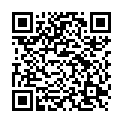|
|
|
| Module code: MBG21-3 |
|
|
6V (6 hours per week) |
|
7 |
| Semester: 1 |
| Mandatory course: yes |
Language of instruction:
German |
Assessment:
Exam achievement
[updated 15.11.2021]
|
MBG21-3 (P311-0192) Management and Professional Pedagogy in Health Care, Bachelor, ASPO 01.10.2021
, semester 1, mandatory course
|
90 class hours (= 67.5 clock hours) over a 15-week period.
The total student study time is 210 hours (equivalent to 7 ECTS credits).
There are therefore 142.5 hours available for class preparation and follow-up work and exam preparation.
|
Recommended prerequisites (modules):
None.
|
Recommended as prerequisite for:
MBG21-19 Academic Methodologies and Study Skills III
[updated 27.03.2025]
|
Module coordinator:
Prof. Dr. Vasiliki Kolovou |
Lecturer:
Prof. Dr. Christine Dörge
Renée Hilbert, M.Sc.
[updated 04.12.2025]
|
Learning outcomes:
Structures of the Health Care System:
After successfully completing this module, students will have the following skills and competencies:
Knowledge and Comprehension:
Students will be familiar with the basic structures and data of the German health care system.
They will understand the key principles of the statutory and private health insurance system and the statutory long-term care insurance system.
They will be familiar with historical and current developments and reforms in the German health care system.
They will know the central institutions of the German health care system.
They will be familiar with the changing requirements and their implications.
The Use, Application, and Generation of Knowledge:
Students will be able to derive new competency profiles and fields of activity from the changing requirements and their implications.
Communication and Cooperation:
Students will be able to negotiate with health and long-term care insurance providers in the context of current developments.
Scientific Self-Concept/Professionalism:
Students will be able to explain how health care is developing and new fields of activity are opening up in the context of demographic and structural conditions.
Health Science Basics:
After successfully completing this module, students will have the following skills and competencies:
Knowledge and Comprehension:
Students will be familiar with selected basic principles of health science.
They will have developed an understanding of public health and its evolution.
They will be familiar with key scientific and subjective constructs of health and illness.
They will be able to describe selected health psychological concepts that can be used to predict health behavior.
They will be able to explain illness behavior models.
They will be familiar with concepts and strategies for disease prevention and health promotion.
They will be able to explain the importance of public health for professional expertise (vocational pedagogy and management in health care).
The Use, Application, and Generation of Knowledge:
Students will be able to identify needs for health promotion and prevention in their professional setting.
They will be able to develop and implement prevention and health promotion measures in their professional setting.
Scientific Self-Concept/Professionalism:
Students will be able to justify selected strategies and measures on the basis of a detailed problem definition.
[updated 15.11.2021]
|
Module content:
Structures of the Health Care System:
1. Historical development and foundations of the German health care system
2. Principles of social security
3. Public health insurance
4. Private health insurance
5. Social nursing care insurance
6. Current developments and reforms in the health care system
7. Central organizations and structures in the German health care system
8. Relevant national and international health care policies
Health Science Basics:
1. Historical introduction to the development of public health and health sciences
2. Scientific and subjective notions of disease and health (biomedical model, biopsychosocial disease model, risk factor model, stress concept, concept of salutogenesis and sense of coherence, resilience)
3.
Models for predicting health behavior (e.g. health belief model, social-cognitive theory, health action process approach)
4.
Illness behavior models
5. Principles of disease prevention and health promotion
6. Examples of health promotion and prevention in the context of settings or stages of life or specific diseases.
Blended learning
[updated 15.11.2021]
|
Recommended or required reading:
Recommended literature will be announced at the beginning of the course.
[updated 15.11.2021]
|

